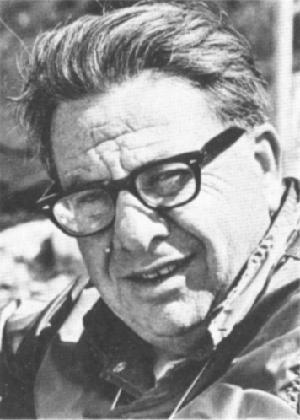Martin Ritt (Martin Ritt)

Unable to work in the television industry, Martin Ritt returned to the theater for several years. By 1956, the Red Scare had decreased in intensity, and he turned to film directing. His first film as director was Edge of the City (1957), an important film for Ritt and an opportunity to give voice to his experiences. Based on the story of a union dock worker who faces intimidation by a corrupt boss, the film incorporates many themes that were to influence Ritt over the years: corruption, racism, intimidation of the individual by the group, defense of the individual against government oppression, and most notably, the redeeming quality of mercy and the value of shielding others from evil, even at the cost of sacrificing one’s own reputation, career, or life. Martin Ritt went on to direct 25 more films. Ritt’s 1964 film The Outrage, is an American retelling of the Kurosawa film Rashomon, and stars Laurence Harvey, Paul Newman, Claire Bloom, Edward G. Robinson, Howard Da Silva, and William Shatner. Like Kurosawa’s film, Ritt employs flashbacks in his film. Paul Newman was fond of this role. He traveled to Mexico and spent time speaking to local residents to study the accents. Newman liked that the film’s narrative included different points of view.
Martin Ritt and Newman worked together on four other movies, Paris Blues, The Long, Hot Summer, Hud and Hombre. In the 1970s, Ritt won acclaim for movies like The Great White Hope (earning Oscar nominations for James Earl Jones and Jane Alexander), Sounder, Conrack (from Pat Conroy’s autobiographical novel), and Norma Rae (Oscar for Sally Field as Best Actress). In 1976, Ritt made one of the first dramatic feature films about the blacklist, The Front, starring Woody Allen. The Front satirizes the use of ‘fronts,’ men and women who (either as a personal favor or in exchange for payment) allowed their names to be listed as writers for scripts actually authored by blacklisted writers. The film was based on the experiences of, and written by, one of Ritt’s closest friends, screenwriter Walter Bernstein, who was blacklisted for eight years beginning in 1950. Martin Ritt scored another hit with Cross Creek, the story of Marjorie Kinnan Rawlings, author of The Yearling. It was nominated for (but did not win) four Oscars, including Best Supporting Actress Alfre Woodard and Best Supporting Actor Rip Torn. Actress Sally Field starred in three of his last six films.
In 1987, Martin Ritt again utilized extensive flashback and nonlinear storytelling techniques in the film Nuts, based on the stage play of the same name, written by Tom Topor. The film was considered a box office disappointment in relation to its budget, although it did not actually lose money. Ritt died at age 76 in Santa Monica, California on December 8, 1990. The cause of death was heart disease. He was survived by his wife Adele; a daughter, film producer Martina Wernerand; and a son, Michael.
Born
- March, 02, 1914
- USA
- New York, New York
Died
- December, 08, 1990
- USA
- Santa Monica, California
Cause of Death
- heart disease
Other
- Cremated



